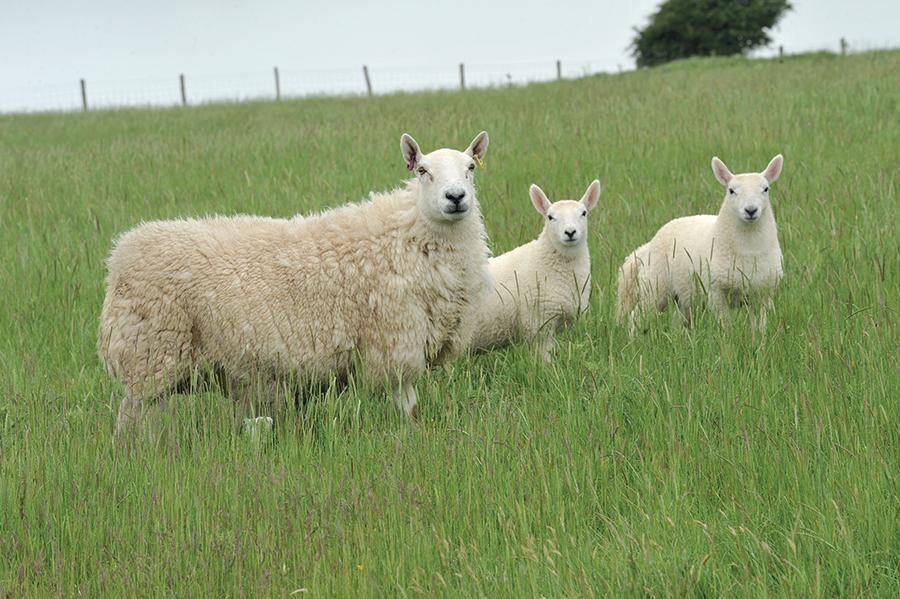Upland farmer uses recording to grow lamb income
8th September 2024
Elfyn Owen has boosted his income from lamb sales by performance recording his closed flock of Welsh Mountain ewes.

In five years, the average weight of lamb produced per ewe in Mr Owen’s flock has increased by 9.3kg, to 47.6kg.
Mr Owen had been performance recording his Cernyw Bluefaced Leicester flock since 1997, so it was a natural progression to record the Welsh ewes when they had the chance to join the Hill Ram Scheme in 2019 and then Tier 1 of Farming Connect’s Welsh Sheep Genetics Programme (WSGP).
Mr Owen runs a flock of 480 Welsh Mountain ewes and 70 Bluefaced Leicesters at Ffrith Arw, near Llanrwst. Two hundred of the Welsh ewes are recorded using DNA parentage techniques because of the extensive nature of the system. This technique is 50:50 funded by the WSGP and Mr Owen.
The ewes are condition scored and weighed in the autumn before the tups are turned in in December, at a ratio of one ram to every 50 sheep. Pregnancy scanning in the 2023 breeding season showed a scanning percentage of 160%, but they are aiming for 180%.
At lambing, the twin-bearing ewes are drafted into one field and their progeny are EID tagged and DNA samples taken from their ears. The analysis of the DNA is matched to that of the ewes and allows parentage to be assigned.
Having EBVs, which indicate exactly where an animal ranks within the breed for specific traits of economic importance, allows him to make better breeding decisions, both within his own flock and when breeding rams and replacements for his customers.
Since Mr Owen started recording the flock in 2019, eight-week weights have increased from -0.19kg to 0.62kg and muscle depth from -0.12 to 0.22; scanning weights have increased by 1.71kg.
A major development in June 2023 saw a change to how the hill index is expressed, as £ as the expected annual return per ewe, to provide a way of ranking animals based on the economic merit of their genetics. Mr Owen’s figures show that in 2020 his flock’s average index was £5.16. Performance recording had increased this to £10.11 in 2023.
“We are getting better weights and muscle depth; it is making the ewe more efficient and making her work for us without any concentrates,” he explains.
The value in recording is also evident in his sale of stock with his yearling tups averaging £1,000 at the 2023 Prohill sale.
Each year he uses more of his own recorded tups on his commercial flock too. Recording is not only helping him to improve his commercial ewes but it is helping the sheep industry overall become more efficient, Mr Owen suggests.
Read more livestock news
